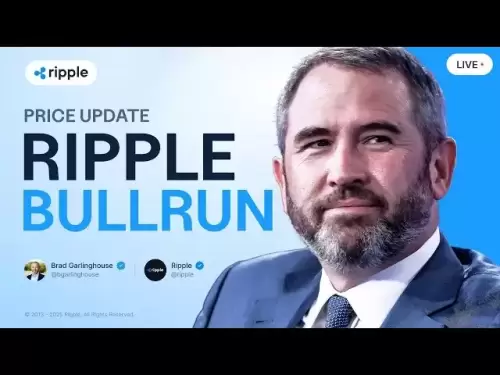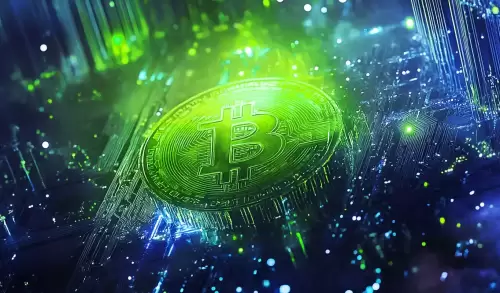 |
|
 |
|
 |
|
 |
|
 |
|
 |
|
 |
|
 |
|
 |
|
 |
|
 |
|
 |
|
 |
|
 |
|
 |
|
Cryptocurrency News Articles
Peter Schiff reignites the Bitcoin vs. gold debate, claiming central banks prefer gold as a safer reserve.
May 24, 2025 at 08:22 pm
Global gold accumulation surges amid Trump’s policies, dollar devaluation, and geopolitical tensions.

The age-old debate between Bitcoin and gold is heating up again and economist Peter Schiff wants to weigh in.
In a recent X post, Schiff, a staunch Bitcoin critic, highlighted the trend of central banks around the world strengthening their gold reserves, emphasizing their timeless value amid global economic uncertainty.
This discussion comes as geopolitical tensions, crypto scams, and shifting economic policies are moving demand.
According to Michael Widmer, a strategist at Bank of America, emerging market central banks currently hold just 10% of their reserves in gold but should be aiming for 30% for greater financial protection.
Trump, Tariffs, and the Rise of Gold Demand
Schiff further ties this growing demand for gold to the current U.S. administration. With President Donald Trump back in office and pushing aggressive tariff policies, countries are looking to shield their economies from potential fallout.
As the dollar weakens, the appeal of gold rises. And in times of uncertainty – from trade wars to banking collapses – central banks want assets that can withstand the test of time.
This is where gold’s legacy shines.
Russia Leads the Gold Playbook
Russia has been ahead of the curve. Between 2014 and 2020, the Russian central bank massively increased its gold holdings to buffer itself from Western sanctions.
Today, its Ministry of Finance is reportedly continuing that accumulation – buying from domestic producers and quietly strengthening reserves.
This playbook is being adopted by other emerging economies as well, reinforcing Schiff’s argument that gold’s value is far from obsolete.
So, if Bitcoin truly is the future, why aren’t central banks buying it?
According to Schiff, U.S. investors may be in for a rude awakening as the price swings continue and global institutions remain cautious.
At the time of writing, gold trades at $3,357.4 per ounce, up 1.82% for the day but slightly down over the month. Meanwhile, Bitcoin is priced at $108,148 – down 2.31% in the last 24 hours, though it’s seen a 17% jump over the month.
Despite the short-term surge, Schiff argues that Bitcoin lacks the long-term security central banks crave.
Ran Neuner Weighs In: Could Bitcoin Still Outshine Gold?
Not everyone agrees with Schiff’s stance. CNBC’s Ran Neuner recently suggested that Bitcoin could outperform gold in the long run as a safe-haven asset – especially amid advancements in blockchain tech and increasing institutional adoption.
But Schiff remains skeptical. He also criticized the growing use of stablecoins in the U.S., highlighting the regulatory fog.
Disclaimer:info@kdj.com
The information provided is not trading advice. kdj.com does not assume any responsibility for any investments made based on the information provided in this article. Cryptocurrencies are highly volatile and it is highly recommended that you invest with caution after thorough research!
If you believe that the content used on this website infringes your copyright, please contact us immediately (info@kdj.com) and we will delete it promptly.
-

-

-

-

-

- From Qubetics' $17.3M Raised to Hedera's Edge Computing Deals and BNB's Trading Innovation — Best Cryptos to Buy Today
- May 25, 2025 at 03:55 am
- As global markets adjust to new regulatory frameworks and digital finance gains unprecedented momentum, a question resurfaces among market watchers: which are the best cryptos to buy today
-

- Mihailo Bjelic, One of the Co-founders of Polygon, Has Decided to Step Down From the Board of the Polygon Foundation
- May 25, 2025 at 03:55 am
- Mihailo Bjelic, one of the co-founders of Polygon, has decided to step down from the board of the Polygon Foundation. This makes him the third founder to walk away from the protocol after Jaynti Kanani and Anurag Arjun.
-

-

-




























































